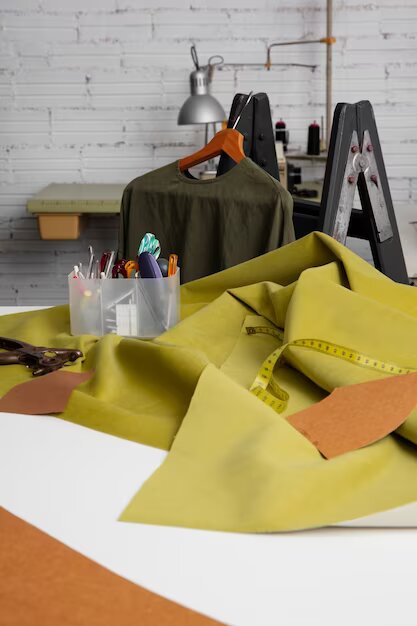New Sustainable Textile Standards: Our Commitment to Certifications

Understanding Sustainable Textile Certifications
Sustainable textiles have gained significant attention in recent years due to the growing awareness of environmental and social impacts associated with the fashion and textile industry. Certifications play a crucial role in promoting sustainability by providing standards and guidelines for businesses to adhere to. In this blog, we will explore the new sustainable textile standards and discuss our unwavering commitment to certifications.
Textile certifications are voluntary standards that assess and verify the sustainability credentials of textile products throughout their lifecycle. These certifications ensure that the materials, production processes, and supply chains meet specific environmental, social, and ethical criteria. By obtaining these certifications, companies demonstrate their commitment to responsible practices and provide transparency to consumers.
Overview of Existing Sustainable Textile Certifications

Several reputable sustainable textile certifications exist in the industry, each with its unique focus and criteria. Let’s take a closer look at some prominent certifications:
Global Organic Textile Standard (GOTS): GOTS ensures the organic status of fibers, from harvesting through environmentally and socially responsible manufacturing.
Oeko-Tex Standard 100: Oeko-Tex tests for harmful substances in textiles, ensuring they meet strict human-ecological requirements.
Cradle to Cradle Certified: This certification evaluates products based on their material health, material reutilization, renewable energy, water stewardship, and social fairness.
Fairtrade: Fairtrade certification focuses on improving the livelihoods and working conditions of farmers and workers in developing countries.
Benefits of Certifications for Consumers and the Industry

Certifications provide numerous benefits for both consumers and the textile industry. For consumers, these certifications offer assurance that the products they purchase meet specific sustainability standards, reducing their environmental and social impact.
Certifications also enable consumers to make more informed purchasing decisions aligned with their values. For the industry, certifications encourage responsible and sustainable practices, fostering innovation and continuous improvement.
They help companies differentiate themselves in the market, enhance brand reputation, and gain a competitive edge by catering to the growing demand for sustainable products.
Emerging Sustainable Textile Standards

The landscape of sustainable textile standards is continually evolving as new challenges and knowledge emerge. Various organizations and initiatives are introducing innovative certification programs to address specific aspects of sustainability. These emerging standards aim to raise the bar and encourage further progress in the textile industry.
It is crucial for businesses to stay informed about the evolving landscape of sustainable textile standards. By keeping up with the latest developments and understanding the new certifications, companies can proactively align their operations with the most current sustainability practices, meet consumer expectations, and contribute to the overall advancement of the industry.
Brief Overview of Our Company's Dedication to Sustainability

Introduce your company’s commitment to sustainability, highlighting key initiatives, goals, and values that drive your approach to responsible textile production.
The Process of Obtaining and Maintaining Certification: Explain the steps your company takes to obtain and maintain sustainable textile certifications. Detail the rigorous assessment processes, the involvement of third-party certifying bodies, and the ongoing efforts to meet and exceed certification requirements.
Potential Challenges and Obstacles in Adopting New Standards

Acknowledge the challenges and obstacles that companies may face when adopting new sustainable textile standards. Address concerns related to cost, implementation complexities, and the need for collaboration and education within the industry.
Encourage readers to take action by supporting and seeking out certified sustainable textiles. Provide guidance on how they can identify and choose products with reputable certifications, empowering them to make sustainable purchasing decisions that align with their values.
Reiterate your company’s commitment to sustainable textile certifications and the broader goals of sustainability. Express your dedication to continuously improving practices, meeting evolving standards, and driving positive change in the industry.
